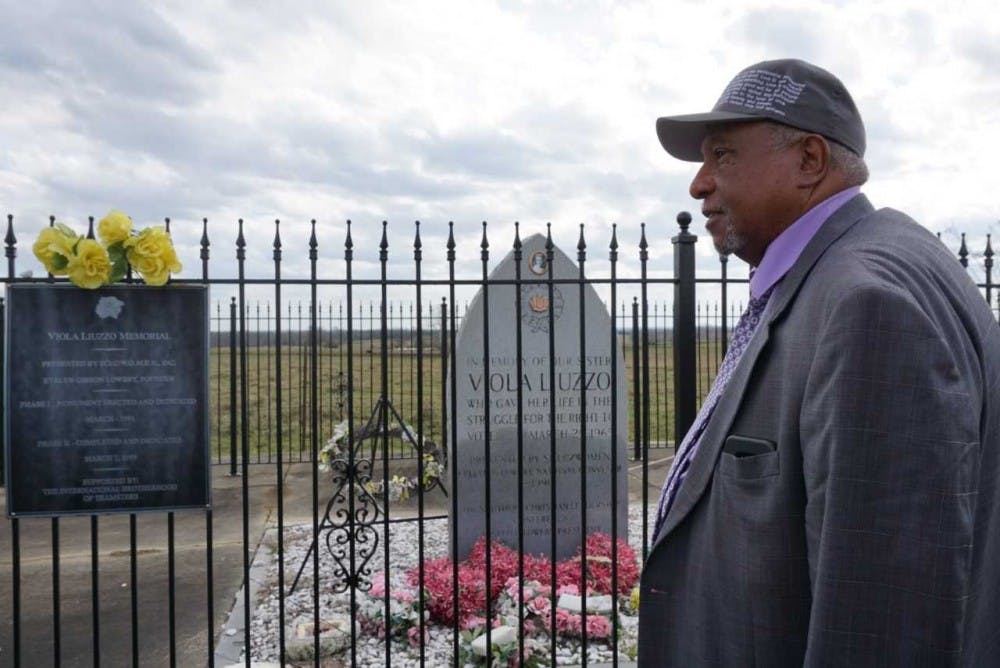Civil rights leader Bernard Lafayette said he just so happened to be in the right place at the right time to become an integral part of the Civil Rights Movement in America.
Lafayette, who was also a Freedom Rider, came to speak Thursday as part of a series of Africana-studies lectures.
A Tampa Bay, Florida, native, Lafayette grew up during the 1940s and 1950s before experiencing the school system in Philadelphia, Pennsylvania.
It was during this time that Lafayette was subjected to violence between integrated races within his elementary school. Once, a fight broke out among the other boys in his grade as Lafayette stood there in silence.
“I was appalled and emotionally disturbed when I saw this fight break out,” Lafayette said. “This experience helped me to realize that you cannot judge people by their color; people can only be judged by their relationship with others, regardless of their colors.”
Lafayette was behind in school early on, but he went on to be tutored by his principal, excelled in his academics and became the speaker of his elementary school's commencement where he led a speech titled, “Living and Working Together.”
At the age of 10, Lafayette would participate in his first boycott in northern Philadelphia, leading a group of gang members. This boycott was known as the boycott of tasty bread and tasty cake, which was led because the bakery’s employees refused to hire African-Americans.
Lafayette would go on to engage with movements in Chicago, Selma, Alabama, New York, Haiti and even South Africa, where he worked alongside Nelson Mandela.
“I teach people to understand how to deal with differences through non-violence and mainly how you move in such a way with reconciliation,” Lafayette said.
After several roles in assisting movements throughout the world, Lafayette would soon work for Martin Luther King Jr. as the national coordinator of the Poor People Campaign and as the program administrator.
Lafayette spent the night prior and the morning of King's assassination with King. They sat together, working on writing a press release for a press conference in Washington D.C. that was scheduled to take place after the march.
Lafayette said that even before the assassination, King felt his time coming.
On the morning of the assassination, King told Lafayette that in the next movement, they would have to internationalize and institutionalize non-violence.
Following King's funeral, Lafayette wanted to start on that next movement, but he felt he needed to go back to school if he was going to do so. He first attended Boston University Law School, where he would take some law credits, and he eventually went on to study and finish his academics at Harvard University.
“We must continue to move forward," Lafayette said at the end of his talk. "I feel very good about what is happening right now within our society. Young people, we know you can do it. Stand firm, be informed, study, get involved and prepare to be citizens. History repeats itself; know how to redirect it.”
Do you like this story? The Plainsman doesn't accept money from tuition or student fees, and we don't charge a subscription fee. But you can donate to support The Plainsman.





